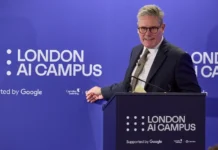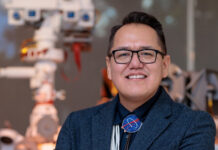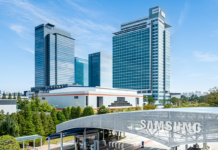Slovenia’s Ambitious Step Towards Clean Energy: The JEK2 Nuclear Project
Slovenia is making significant strides towards achieving its energy and environmental goals with the introduction of the JEK2 project. This endeavor aims to provide up to 2400 megawatts electric (MWe) of power capacity through the use of advanced nuclear technology, specifically utilizing either Generation III or Generation III+ designs. This approach not only promises to boost Slovenia’s energy capabilities but also plays a crucial role in reducing emissions, aligning with global climate targets.
Understanding the Technology: GEN III and GEN III+
Before delving deeper into the implications of the JEK2 project, it’s important to understand the technology behind it. Generation III and Generation III+ refer to the latest advancements in nuclear reactor designs. These reactors are more efficient and safer compared to their predecessors. They incorporate enhanced safety features, such as passive safety systems that function even without operator intervention, and are built to withstand extreme natural events. The adoption of such cutting-edge technology underscores Slovenia’s commitment to not only expanding its energy capacity but doing so in a responsible, forward-thinking manner.
Public Interest and Informed Discussions
The Director General of the project recently engaged with various Slovenian media outlets to discuss the nuances of nuclear energy, including costs, waste management, and safety concerns. He emphasized the importance of public awareness and open discussions on these topics. There appears to be a broad consensus among the Slovenian populace regarding the practicality of investing in nuclear energy. However, the ultimate decision rests with the people of Slovenia, highlighting the democratic process in energy planning.
The Role of Nuclear Power in a Clean Energy Future
Nuclear energy is increasingly recognized as a vital component of a sustainable energy future. The Director General elaborated on the need for an integrated and intelligent energy mix, cautioning against over-reliance on a single energy source. While renewable energy sources like wind and solar are critical, they are intermittent and cannot yet provide the continuous, stable power needed to support a modern economy. Nuclear energy, on the other hand, offers a reliable base load power supply, ensuring that energy demands are consistently met.
This perspective is gaining traction globally, as many leading economies are exploring nuclear options to secure their energy futures. The reliability and low emissions of nuclear power make it an attractive option for countries striving to balance energy needs with environmental responsibilities.
Engaging the Next Generation
In addition to media engagements, the Director General also met with student groups to discuss the potential of nuclear energy. These interactions are crucial in fostering a well-informed younger generation that can contribute to the country’s energy discourse. Education and awareness are key in shaping public opinion and policy, ensuring that Slovenia’s energy strategy is both innovative and inclusive.
Broader Implications and Global Perspectives
The move towards nuclear energy in Slovenia is part of a larger global trend. As countries grapple with the challenges of climate change and energy security, many are turning to nuclear power as a viable solution. The stability and scalability of nuclear energy enable countries to reduce their carbon footprints significantly while maintaining economic growth and energy security.
Environmental and Economic Considerations
Implementing the JEK2 project will have far-reaching environmental and economic benefits. By reducing reliance on fossil fuels, Slovenia can cut down on greenhouse gas emissions, contributing to global efforts to combat climate change. Economically, the project is likely to create jobs, stimulate technological innovation, and attract investment, boosting the country’s economic resilience.
Public Perception and Future Prospects
Public perception of nuclear energy has evolved over the years, largely due to advancements in technology and increased awareness of the need for sustainable energy solutions. However, challenges remain, particularly in addressing concerns about nuclear waste and the potential risks associated with nuclear power plants. Transparent communication and continuous education are essential in addressing these concerns and building public trust.
Slovenia’s decision to pursue the JEK2 nuclear project reflects a forward-thinking approach to energy planning. By diversifying its energy sources and investing in advanced technology, the country is positioning itself as a leader in sustainable development. As the world continues to seek solutions to the energy and environmental challenges of our time, Slovenia’s efforts serve as a valuable example of how nations can balance growth with sustainability.
For further insights into Slovenia’s nuclear energy initiatives and global trends in sustainable energy, interested readers can visit reliable sources like the official website of the International Atomic Energy Agency.
For more Information, Refer to this article.



































